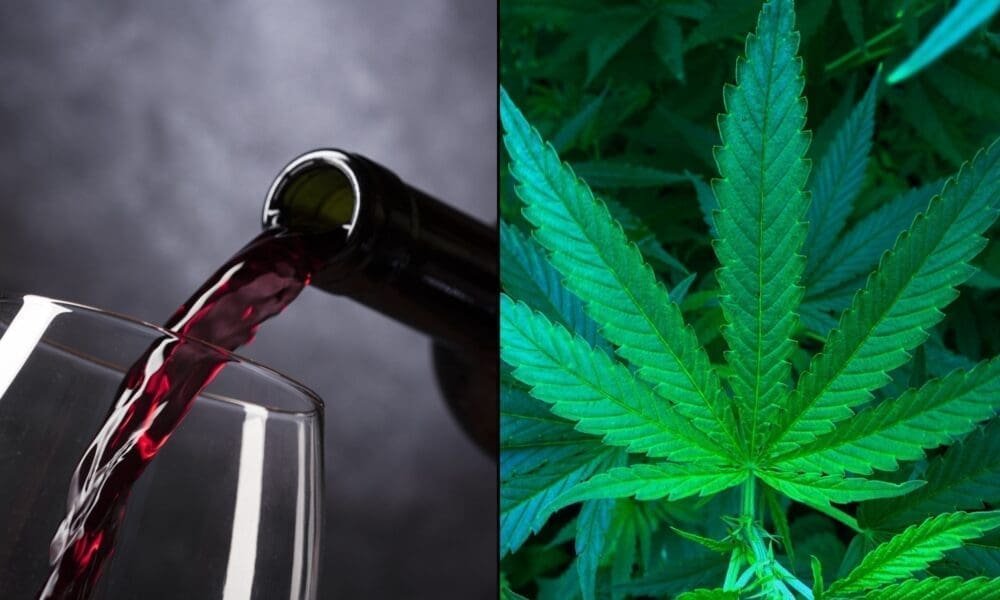Leading alcohol industry associations are calling for Congress to rescind language from a House Committee-approved Spending Bill that would have banned most hemp-derived products. Instead, they propose to keep the natural cannabinoids derived from the plant legal and to only ban synthetic ones.
Wine & Spirits Wholesalers of America (WSWA), which has backed federally legalizing marijuana and regulating hemp products, said on Friday that it generally supports the effort to ban synthetic cannabinoids such as delta-8 THC that have proliferated since the federal legalization of hemp under the 2018 Farm Bill.
According to the Association, however, the hemp provisions of the House Appropriations Subcommittee on Agriculture, Rural Development, Food and Drug Administration, and Related Agencies approved the bill on Thursday was a step too far.
Francis Creighton, WSWA CEO and President said that the WSWA supported subcommittee action in eliminating synthetic and unnatural cannabinoids as a risk to health and safety. “But prohibition of all cannabinoids is not the answer—it risks sweeping up state regulated and Farm Bill compliant hemp-derived products that have driven a new and dynamic market.”
Creighton stated that “Under an attempted total prohibition, the bad actors who deal in potentially dangerous products would continue to operate in the dark, and state regulatory systems which protect public safety could be in conflict with Federal laws.”
WSWA put forward a policy recommendations for lawmakers to consider—namely removing the a provision redefining hemp in a way that’d prohibit products with any quantifiable amount of THC so that the federal government could instead “preserve state authority, protect compliant businesses, and ensure clarity for consumers and regulators.”
The consumable hemp product crackdown isn’t exclusive to the federal government, as multiple states—from California to Florida to Texas—have moved to ban intoxicating cannabinoids in recent months.
Creighton noted that the states have filled in regulatory gaps, but Congress should not undermine this progress.
Shawn Lederman of the Florida-based Greenlight Distribution said the company has “invested in jobs, infrastructure, and compliance to bring accountability to this space—efforts that would be wiped out overnight, handing the market to unregulated bad actors. Congress should respect both our businesses and citizens. “A total ban on all tobacco products would be disastrous.”
John Giarrante said that Show Me Beverages’ president in Missouri would “undermine the work we have done responsibly and legally to satisfy the consumer’s demand, while prioritizing their health and safety.”
He added: “We built a transparent, compliant business in order to provide structure and legitimacy for this growing market.” “This action would not only undo that progress but also have a harmful economic impact—putting jobs at risk and handing the entire category over to unlicensed, unregulated actors with no regard for safety or accountability.”
In April, WSWA members met with legislators and their staff to discuss three policy goals that are based upon “sound principles for alcohol distribution,” according to the group. These include the banning of synthetic THC and the establishment of a federal testing system and product labeling.
Creighton echoed his point of view in an op/ed he wrote for MEDCAN24. In it, he reiterated that the organization believes that regulation is better than prohibition.
This is also consistent with WSWA’s earlier message to House and Senate Agriculture Committee last session, where the association implored congressional leaders to create a regulatory framework for hemp-based intoxicating cannabinoids—rather than impose an outright ban.
Meanwhile, key GOP congressional lawmakers—including one member who supports marijuana legalization—don’t seem especially concerned about provisions in a new spending bill that would put much of the hemp industry in jeopardy by banning most consumable products derived from the plant.
According to the proposal that is being challenged, hemp will be defined under federal law in such a way as to prohibit any cannabis product containing “any quantifiable amount” of THC. This would also include “any cannabinoids which have similar (or are advertised) effects on animals or humans” that THC has.
The bill provisions that will be voted on by the full committee would eliminate most of the hemp products currently being sold, since even the non-intoxicating CBD goods are typically laced with trace amounts THC. According to current legislation, these products can only be sold if they have less than 0.3 per cent THC in dry weight.
Hemp industry participants rallied to oppose that proposal. A previous version of it was included in last year’s subcommittee base bill. It’s virtually identical to a provision of the 2024 Farm Bill that was attached by a separate committee last May via an amendment from Rep. Mary Miller (R-IL), which was also not enacted into law.
—
MEDCAN24 has been tracking the hundreds of bills relating to cannabis, psychedelics or drug policies that have passed through state legislatures as well as Congress in this past year. Patreon members who pledge at least $25/month gain access to interactive maps, charts and a hearing calendar.
Find out more about the tracker of marijuana legislation and support us on Patreon for access.
—
Jonathan Miller, general counsel of the U.S. Hemp Roundtable, told congressional lawmakers in April that the market is “begging” for federal regulations around cannabis products.
Rep. James Comer, R-KY, also asked about FDA’s inaction on regulations. He asked sarcastically if “a gazillion of bureaucrats who work at home” would be required to regulate CBD and other cannabinoids.
A report from Bloomberg Intelligence (BI) last year called cannabis a “significant threat” to the alcohol industry, citing survey data that suggests more people are using cannabis as a substitute for alcoholic beverages such a beer and wine.
Last November, meanwhile, a beer industry trade group put out a statement of guiding principles to address what it called “the proliferation of largely unregulated intoxicating hemp and cannabis products,” warning of risks to consumers and communities resulting from THC consumption.
New Hampshire House Introduces Bills to Reduce Psilocybin Punishments and Legalize Home-Grown Medical Marijuana by Patients





